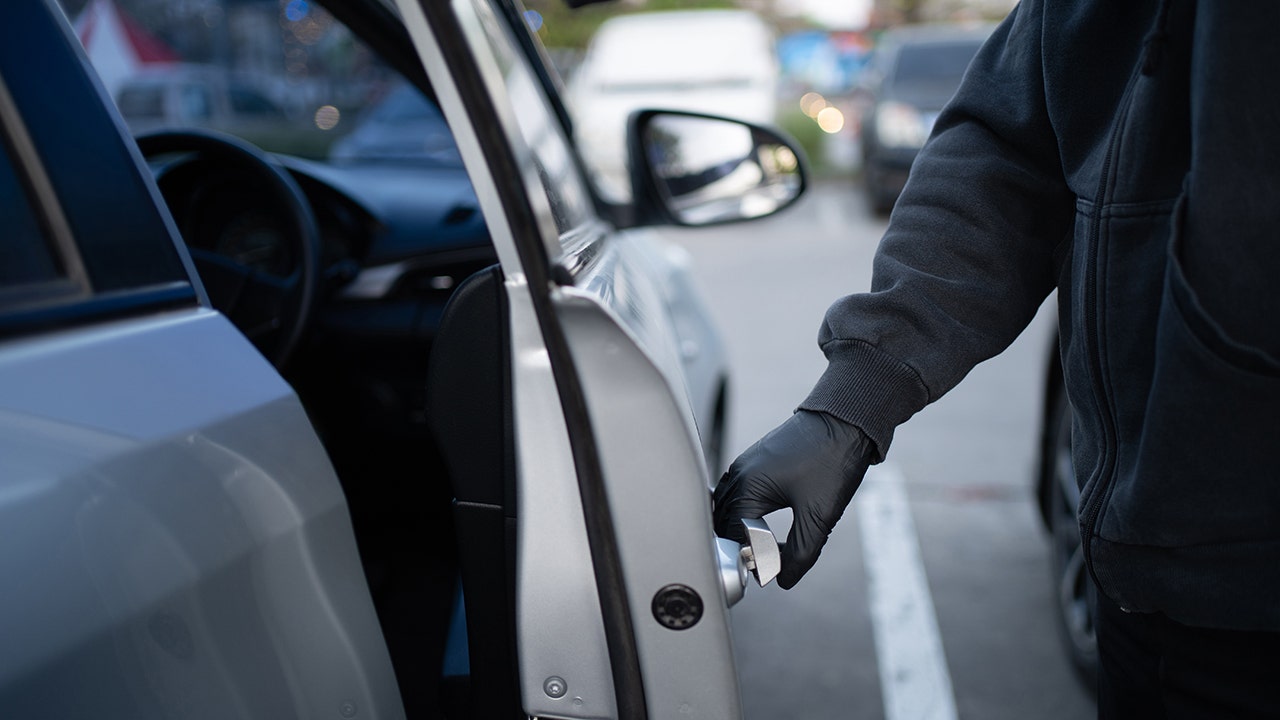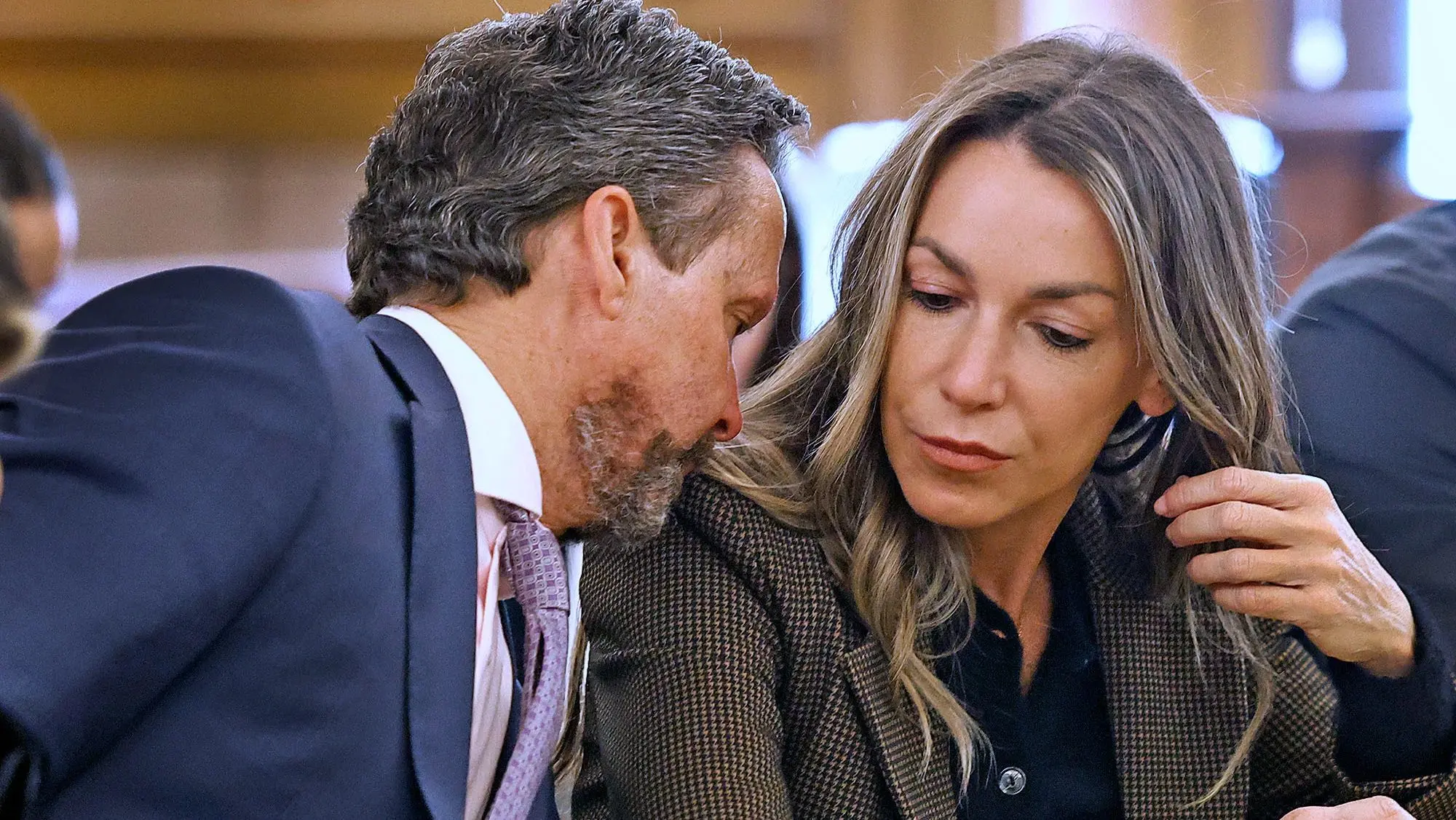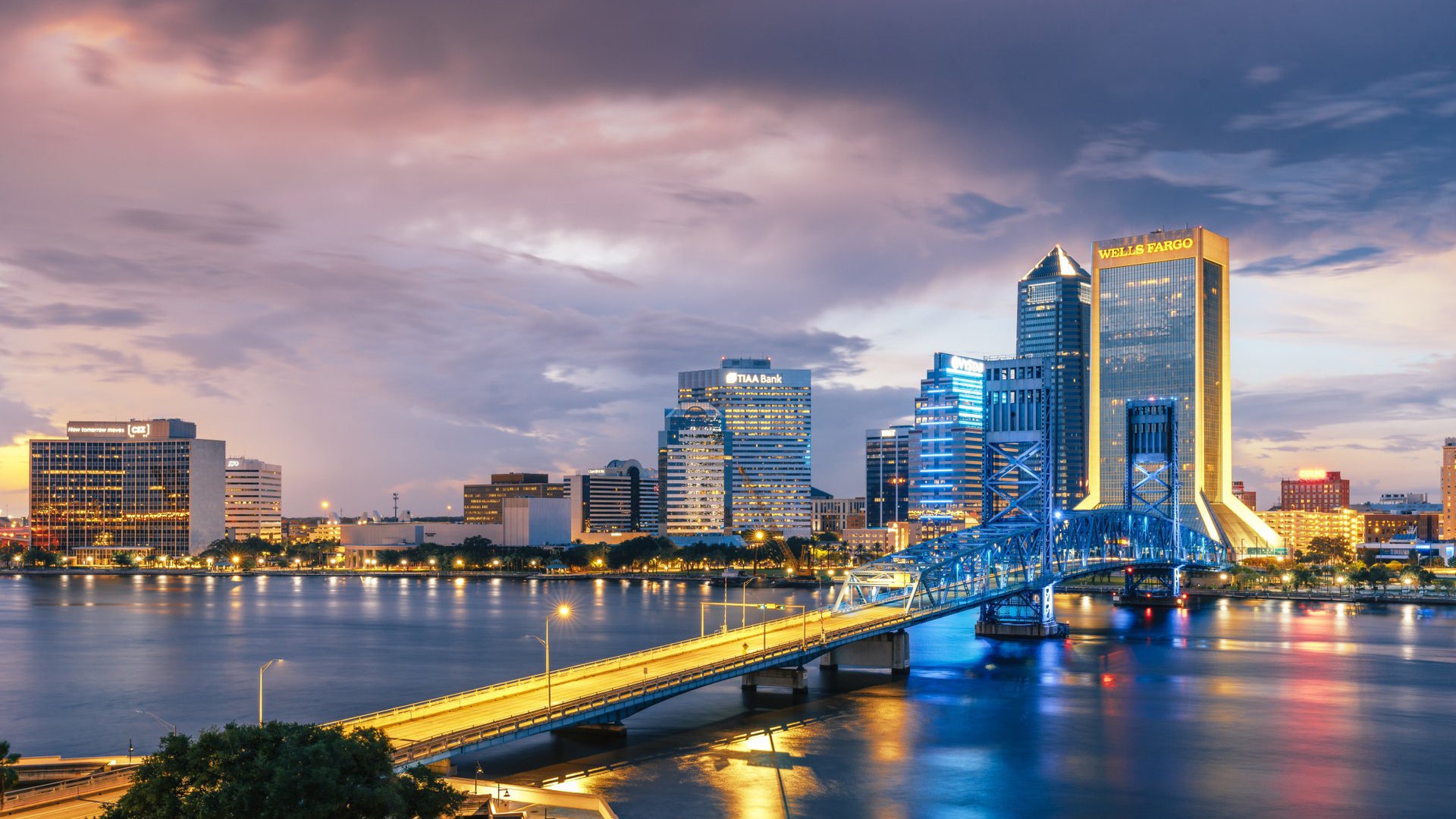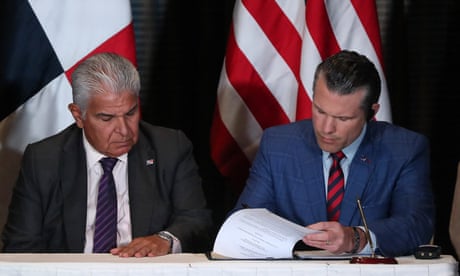American car thefts surge as teenage bandits, international crime rings ship stolen vehicles overseas














European Commission president floats idea of zero-for-zero tariff agreement with US, saying she hopes to achieve ‘frictionless trade’
US president Donald Trump stepped away from the brink of an all-out trade war last night, suspending his “reciprocal” tariffs for 90 days for everyone but China to create space for negotiations on better arrangements.
Trump appeared surprised when asked about the EU’s retaliatory tariffs adopted yesterday, only to be reassured by his officials that the expectation is that they will be effectively delayed until never.
Continue reading...
© Photograph: Omar Havana/AP

© Photograph: Omar Havana/AP





Pete Hegseth suggests military could return to Central American country to ‘secure’ strategically important canal
The US defence secretary has floated the idea of the country’s troops returning to Panama to “secure” its strategically vital canal, a suggestion quickly shot down by the Central American country’s government.
Pete Hegseth suggested during a visit to Panama that “by invitation” the US could “revive” military bases or naval air stations and rotate deployments of its troops to an isthmus the US invaded 35 years ago.
Continue reading...
© Photograph: Franco Brana/AFP/Getty Images

© Photograph: Franco Brana/AFP/Getty Images





The final book in Jim Heimann’s survey of a century of US advertising takes us to a decade where Apple sold a new way of living and mermaids hawked Evian. It’s a ‘swan song’, he says – for his series but also the industry as a whole
As the longtime editor of Taschen’s All-American Ads book series, cultural historian Jim Heimann has helped chronicle the shifting landscape of commercial artistry through each decade of the 20th century. Now, with a final volume dedicated to the 2000s, Heimann has completed what he calls a “swan song” – not just for the series, but for an entire era of advertising. It presents the last moment before social media and the decline of print media transformed the industry for ever.
The 2000s were fraught with social, political and cultural disruptions. Chief among them were the September 11 terrorist attacks, which sparked a dramatic wave of national trauma that simultaneously drove the advertising industry to embrace patriotism while seeking escapism. Brands such as Budweiser, with its iconic Clydesdale tribute – which sees a team of horses pulling a beer wagon to New York before bowing their heads towards the Manhattan skyline – channelled unity, while luxury brands offered distraction through aspirational messaging.
Continue reading...
© Photograph: Taschen

© Photograph: Taschen
A new progressivism, one that embraces construction over obstruction, must find new allegories to think about technology and the future
Black Mirror is more than science fiction – its stories about modernity have become akin to science folklore, shaping our collective view of technology and the future.
Each new innovation gets an allegory: smartphones as tools for a new age caste system, robot dogs as overzealous human hunters, drones as a murderous swarm, artificial intelligence as new age necromancy, virtual reality and brain chips as seizure-inducing nightmares, to name a few. Episodes most often channel our collective anxieties about the future – or foment new ones through masterly writing, directing, casting and acting. It is a must-watch, but must we take it so seriously?
Continue reading...
© Photograph: Nick Wall/Netflix

© Photograph: Nick Wall/Netflix
From fiscal rules to universities, doors have opened that were shut three months ago. Our future depends on which he chooses
It was Bismarck who expressed the art of political leadership most poetically. “A statesman cannot create anything himself,” Germany’s 19th-century iron chancellor once said. “He must wait and listen until he hears the steps of God sounding through events; then leap up and grasp the hem of his garment.”
In other words, when it comes, seize the day. Leadership as Bismarck perfected it combined opportunity, readiness and drive. If circumstances allowed – something Bismarck was brilliant at ensuring – an opening might present itself, through which he could propel the state in the direction he wanted. At such moments, the gales of history seem to intensify, making it possible to achieve things that would otherwise be impossible, or more hazardous, in normal times.
Continue reading...
© Illustration: Bill Bragg/The Guardian

© Illustration: Bill Bragg/The Guardian
Mackerel patties to snack on and deep-fried eggs in a rich curry sauce – both are great for new year on 14 April
Sinhalese and Tamil traditions may differ, but the celebration of the new year in mid-April unites the two communities. It’s a major cultural moment that marks the end of the harvest season, and some key customs include everyone cleaning their home to prepare for the festivities (and to clear away bad luck!), the lighting of oil lamps and, of course, food. That can take the form of special sweets, celebratory treats such as kavum (cakes made with coconut oil), kiri-bath (milk rice), kokis (a crisp fried dough), and everyday favourites such as today’s two dishes.
Continue reading...
© Photograph: Issy Croker/The Guardian. Food and prop styling: Kitty Coles. Food styling assistant: Grace Jenkins.

© Photograph: Issy Croker/The Guardian. Food and prop styling: Kitty Coles. Food styling assistant: Grace Jenkins.
Climate denialism should not blind investors and governments to the very real opportunities to be found in financing solutions
Among the many shocks currently facing the international development community is the new direction of the US administration on climate, and the implications worldwide for mitigation and adaptation efforts.
This is not uncharted territory. While a withdrawal from the Paris climate agreement is undoubtedly a setback, it no longer carries the same level of disruption as it did. The global community has become more resilient and will continue to advance climate action.
Continue reading...
© Photograph: Daniel Irungu/EFE/EPA

© Photograph: Daniel Irungu/EFE/EPA
Dutch group Follow This says it will not file any resolutions against oil and gas companies this AGM season
A green shareholder activist group has decided to “pause” its work pushing oil companies to reduce their emissions amid a growing investor backlash against climate action.
Follow This has confirmed that it will not file any climate resolutions against oil and gas companies during the forthcoming AGM season for the first time since 2016.
Continue reading...
© Photograph: Eva Plevier/ANP/AFP/Getty

© Photograph: Eva Plevier/ANP/AFP/Getty


China’s 84% tariffs on US products come into force amid market relief after Trump suspends steep reciprocal tariffs elsewhere
Donald Trump’s trade war with China has entered a new phase, as Beijing’s 84% retaliatory tariffs came into effect hours after the US president announced a pause of steep reciprocal tariffs on dozens of countries except China.
Markets rebounded after Trump’s announcement of the sudden pause, after the most volatile episode in financial markets since the pandemic.
Continue reading...
© Photograph: Paul Christian Gordon/ZUMA Press Wire/REX/Shutterstock

© Photograph: Paul Christian Gordon/ZUMA Press Wire/REX/Shutterstock
A hapless young idealist sets sail for utopia, in this wild epic of colonial chaos in the late 18th-century Americas
In that dimple of European history between the French Revolution and the coronation of Queen Victoria, there lived a not inconsiderable number of men – usually young, dumb, and full of opium – whose foremost ambition was to set sail for the Americas, and there, in their own parcels of conveniently cheap and plentiful wilderness, found utopian communes where society could be forged anew in accordance with the principles of enlightenment. It certainly didn’t hurt that these endeavours would enable – even necessitate – quite a lot of shagging. Samuel Taylor Coleridge and his mates, Roberts Southey and Lovell, laid plans, between blasts of nitrous oxide and versification, for the foundation of a commune on the banks of Pennsylvania’s Susquehanna River, chosen for its “excessive beauty and its security from hostile Indians”. Lack of funds quickly became an issue, and soon our intrepid Romantics had compromised on location, proposing to found their “Pantisocracy” in rural Wales instead of the New World. Perhaps unsurprisingly, the plan never came off.
Angel Kelly, the hapless protagonist – or perhaps initiator would be a better word – of Oisín Fagan’s second novel, Eden’s Shore, is one of these Coleridgian dreamers. At the opening, we meet him as a young and feckless law student at the University of Dublin, hanging around Parliament Street with his “broad-brimmed hat, a cravat and a small book of Montesquieu under his arm, from which he partook of no more than five sentences a day”. Secretly, he believes he will “one day prove to be a great man”. An inheritance from a beloved aunt allows him to further augment his epicurean lifestyle, but when the pleasures of whoring, drinking and tobacco begin to pall, he resolves to spend the last of his wealth on an expedition to Brazil, with the intention of founding “the harmonious society” of which he and his friends “had so often and so manfully spoken”: “a colony that is free from the sins of the old world – a place free from tyranny, discrimination, illegality, religion, persecution, taxation”.
Continue reading...
© Photograph: Javier Ghersi/Getty Images

© Photograph: Javier Ghersi/Getty Images
![“Mighty Morphin Power Rangers” head writer Tony Oliver insisted “none of us [were] thinking stereotypes” during casting.](https://nypost.com/wp-content%2Fuploads%2Fsites%2F2%2F2025%2F04%2Fmighty-morphin-power-rangers-david-102244113.jpg?w%3D1024)








Uberto Pasolini’s raw and urgent drama, from a draft by Edward Bond, sees a traumatised Odysseus face the shameful aftermath of war
The film world is on tenterhooks for Christopher Nolan’s forthcoming Imax-epic treatment of Homer’s Odyssey, but Uberto Pasolini’s fierce, raw drama of the poem’s final sections, describing Odysseus’s traumatised return to Ithaca after the sack of Troy, may well give Nolan something to live up to. Pasolini collaborated on the script with screenwriter John Collee, evidently developed from a draft playwright Edward Bond wrote in the 90s; among other things, this film deserves attention as the final work from Bond (who died in 2024).
The Return is an elementally violent movie about PTSD, survivor guilt, abandonment, Freudian dysfunction and ruined masculinity. Juliette Binoche is the deserted queen Penelope, enigmatically reserving her opinions and dignity, refusing to believe the absent king is dead and declining to remarry as the island descends into lawlessness without a clear successor. Ralph Fiennes is Odysseus, enigmatically washed ashore semi-conscious in a way we associate in fact with late Shakespeare rather than Homer; he is reluctant to reveal himself, maybe through shame at having not returned before, at returning now in chaotic poverty and isolation and overwhelmed with his secret knowledge that the glories of war are a shameful delusion.
Continue reading...
© Photograph: Landmark Media/Alamy

© Photograph: Landmark Media/Alamy
Scientists say a complex mix of factors are making seasonal allergies worse for longer in many parts of the world – but why is it happening and is it here to stay?
The first time it happened, László Makra thought he had flu. The symptoms appeared from nowhere at the end of summer in 1989: his eyes started streaming, his throat was tight and he could not stop sneezing. Makra was 37 and otherwise fit and healthy, a mid-career climate scientist in Szeged, Hungary. Winter eventually came and he thought little of it. Then, it happened the next year. And the next.
“I had never had these symptoms before. It was high summer: it was impossible to have the flu three consecutive years in a row,” he says.
Continue reading...
© Photograph: Philippe Huguen/AFP/Getty Images

© Photograph: Philippe Huguen/AFP/Getty Images
Chip, memory and webcam upgrades are joined by welcome price cut for the top premium notebook
Apple’s much-loved MacBook Air gets even more power, a much better webcam and an unexpected price cut for 2025, making one of the very best consumer laptops even more tempting.
The company’s thinnest and lightest laptop currently starts at £999 (€1,199/$999/A$1,699) – £100 less than last year’s model – and has Apple’s top M4 chip with a minimum of 16GB of memory, making the cheapest model much more capable.
Continue reading...
© Photograph: Samuel Gibbs/The Guardian

© Photograph: Samuel Gibbs/The Guardian
A wave of immigration during the communist years has seen a slow burn for Vietnamese food – from beef noodles to green rice ice-cream – in the Czech Republic’s capital
An older Asian woman is hunched over a gas burner serving noodles, a young couple in the distance shuffle piously into a tiny Buddhist temple, and a perpetual gaggle of families emerge from a Vietnamese supermarket armed with giant sacks of rice. It is a scene as authentically Vietnamese as I could expect to find. But I am not in Vietnam or even Asia. I am in Prague.
Sapa, or Little Hanoi as it is affectionately known, is the hub of the Czech Republic capital’s Vietnamese community, and is a far cry from the spires, dumplings and beer-sploshed splendour of the historical centre. Tucked inconspicuously on its outskirts, this city within a city is where the nation’s Vietnamese people come to stock up on spices, eat plates of bun cha or sell inordinate amounts of large, fluffy geese.
Continue reading...
© Photograph: Vojtech Tesarek

© Photograph: Vojtech Tesarek
From naked tree-dwellers to relaxing goats, Dylan Hausthor’s lyrical images delve into faith, folklore and the inherent queerness of nature
Continue reading...
© Photograph: Dylan Hausthor

© Photograph: Dylan Hausthor

















Bill which sought to radically reinterpret New Zealand’s founding treaty between Māori tribes and the British Crown fails by 11 votes to 112
It was the bill that launched 300,000 public submissions, sparked New Zealand’s largest ever protest on Māori rights and prompted a haka in parliament that quickly went viral.
And now the treaty principles bill, which sought to radically reinterpret New Zealand’s founding treaty between Māori tribes and the British Crown, is dead.
Continue reading...
© Photograph: Joe Allison/Getty Images

© Photograph: Joe Allison/Getty Images
We examine potential consequences of US president’s market chaos, which could reach every corner of global finance and economy
Donald Trump may have stepped back from his huge tariff rises on every country, except China, which now faces 125%, but the impact of the market chaos is likely to continue in the UK and beyond. The rest of the world still faces a blanket 10% tariff on all US exports.
While much of the focus has been the direct impact of the tariffs on physical goods, Trump’s actions threaten to reach every corner of global finance and the economy.
Continue reading...
© Photograph: Angela Weiss/AFP/Getty Images

© Photograph: Angela Weiss/AFP/Getty Images
Former PM says it is also the moment for the UK to go even further in renewing ties with the EU
Gordon Brown has called for an “economic coalition of the willing” to respond to Donald Trump’s tariffs with coordinated economic policies, including a reduction of interest rates.
The former prime minister also said it was a moment for the UK to go even further in renewing ties with the EU, suggesting it should mean “collaboration that is even more extensive than removing post-Brexit trade barriers”.
Continue reading...
© Photograph: Murdo MacLeod/The Guardian

© Photograph: Murdo MacLeod/The Guardian
As I discovered then, global problems need international responses. By working together, we can protect jobs and living standards
No more than a narrow window of opportunity remains if we are to prevent an unnecessary global recession. As China and the US decouple, disruptive trade wars are intensifying and threaten to descend into currency wars; import, export, investment and technology bans; and financial fire sales that will destroy millions of jobs worldwide. It seems barely credible that the world is being brought to its knees by one economy, outside of which live 96% of the population, who produce 84% of the world’s manufactured goods. But even though US officials have previously talked of a tariff policy of “escalate to de-escalate”, Donald Trump’s aim is to force manufacturing back to the US, and his 90-day relaxation of some tariffs does not mean he intends to defuse the crisis.
On Monday, Keir Starmer warned that the world will never be the same again, and reminded us that “attempting to manage crises without fundamental change just leads to managed decline”. He is right. As I learned in the financial crisis of 2008, global problems require globally coordinated solutions. We need a bold, international response that measures up to the scale of the emergency. In the same way that, to his great credit, the prime minister has been building a coalition in defence of Ukraine, we need an economic coalition of the willing: like-minded global leaders who believe that, in an interdependent world, we have to coordinate economic policies across continents if we are to safeguard jobs and living standards.
Continue reading...
© Composite: Alex Mellon for the Guardian : Getty Images/AFP/Reuters

© Composite: Alex Mellon for the Guardian : Getty Images/AFP/Reuters
Politicians and student activists decry ‘outlandish’ deportation of Felipe Zapata Velázquez to Colombia
A campus protest is planned at the University of Florida on Wednesday in support of a Colombian student deported by the Trump administration following his arrest for alleged traffic violations.
The family of Felipe Zapata Velázquez, 27, said on Tuesday he was “undergoing a physical and emotional recovery process” in his home country after police arrested him in Gainesville on 28 March for offenses including having an expired tag and suspended driver’s license, then turned him over to Immigration and Customs Enforcement (Ice).
Continue reading...
© Photograph: Miami Herald/TNS

© Photograph: Miami Herald/TNS
Rio Ferdinand joked that the Prince of Wales could take his job as a football pundit as the royal tried his hand at an analysis of Aston Villa’s Champions League quarter-final in Paris on Wednesday, 9 April.

© PA Wire
More than 1,000 men have been screened and eliminated from the inquiry by the police

© Thames Valley Police/PA Wire
Writer and director was accused of abusing his power in film industry to sexually assault women across four decades

© Richard Shotwell/Invision/AP
Bethany Gamble used steroid creams to treat her eczema from the age of two - then they stopped working

© Collect/PA Real Life
Action star has broken his silence on the accusation

© Getty Images
Scheffler is aiming to defend his title while McIlroy is desperate to finally land that elusive green jacket

© Getty Images